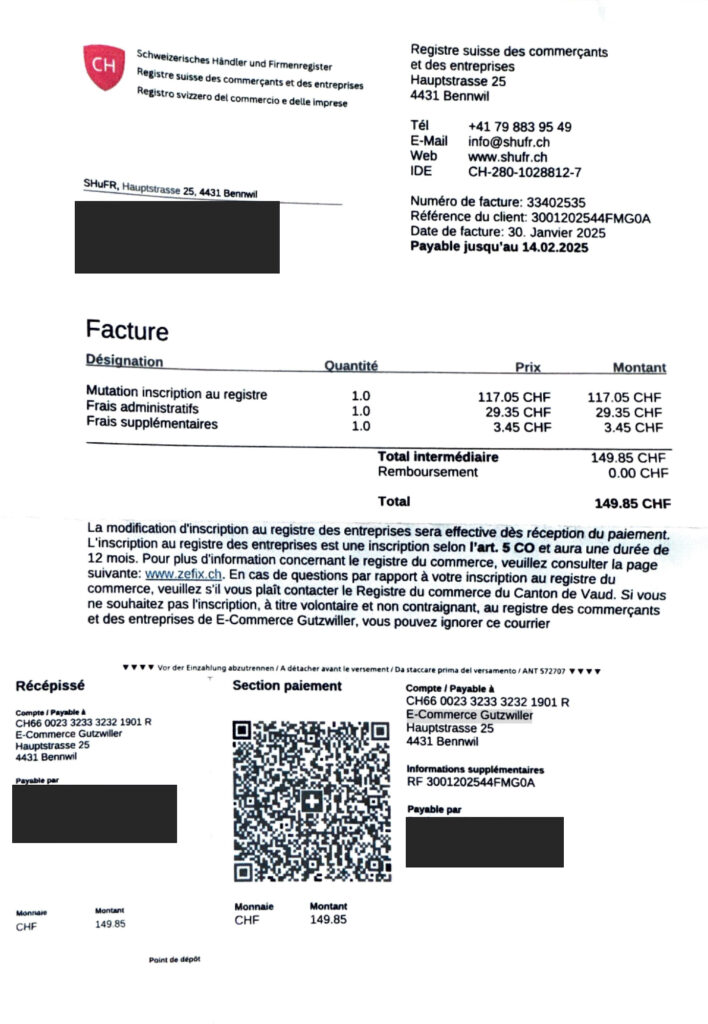
After registering a new business or making changes to the Commercial Register, entrepreneurs may receive misleading invoices from private organizations with deceptive names. These payment requests do not originate from the official Cantonal Commercial Register and are part of a strategy aimed at getting companies to sign up for unnecessary subscriptions.
How to Identify Suspicious Payment Requests?
After the publication of your company’s registration or modification in the SOGC (Swiss Official Gazette of Commerce), some private operators send invoices that appear to come from official entities. These documents:
- are designed to look like official communications, often featuring logos or symbols resembling those of government institutions;
- include real company data, which is retrieved from the Commercial Register;
- request payment for a supposedly mandatory service;
- conceal, in small print, the fact that the listing is optional in a private database.
If a company pays this “invoice,” it is actually signing up for a subscription contract, often lasting one year, with no official value.
A Real Example: A Case from One of Our Clients
One of our clients, a company that had recently made changes to its Commercial Register data, contacted us after receiving a suspicious invoice shortly after the modification was published. Upon reviewing the document, we confirmed that it was not an official payment for the Commercial Register but rather a disguised commercial offer proposing to publish the modification in a private register of questionable usefulness. We advised the client to ignore the request and not make any payment.

How to Protect Yourself?
Here are some tips to avoid falling into these traps:
- Check the sender of the invoice
- Official invoices come only from the Cantonal Commercial Register offices.
- If the payment is requested by a private company, it could be a misleading request.
- Always read the fine print
- Some companies use small print to obscure crucial information and create confusion.
- By reading carefully, you will notice indications that the service is not mandatory.
- Verify with your consultant or the Commercial Register
- If you have doubts, consult an expert or the relevant cantonal office.
- Do not pay and report any questionable practices
- If you receive a suspicious invoice, ignore it.
- You can also report it to SECO (State Secretariat for Economic Affairs), which monitors such practices.
Conclusion
These practices take advantage of the critical moment of business registration or modification to offer services that may appear mandatory but are not. Raising awareness about these tactics is essential to protecting new businesses and ensuring that no one makes unnecessary payments.
If you receive a suspicious invoice, take the time to review it carefully. If you have any doubts, you can always consult an expert. We at Hoop are here to support you and provide clarity.
This blog article does not constitute legal advice, it is made available “as is” and makes no claim to completeness or accuracy. Hoop makes no warranty or liability as to its content. This is excluded to the extent permitted by law. Use is at your own risk. Legal advice is recommended if necessary.

Leave a Reply